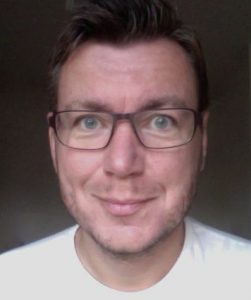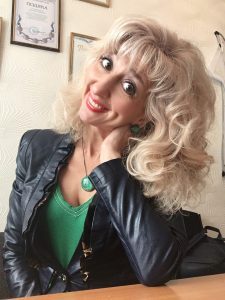 Professor Eliana Danilavichiutie
Professor Eliana Danilavichiutie
Head of Speech–Language Pathology Department in the Institute of Special Pedagogy at the National Academy of Educational Sciences of Ukraine.
Eliana Danilavichiutie had a practical training on inclusion of children with special needs in Canada, became a participant of the Ukrainian-Canadian project of inclusive education development in Ukraine (2008-2012) and took part in inclusive form of education standards elaboration and study guides creation. Eliana Danilavichiutie is the author of more than 70 scientific publications among which there are: the Ukrainian State Standards, Ukrainian and English language curriculums, teaching techniques, study guides and textbooks for children with severe speech disabilities. She combines her scientific work with speech-language clinical practice.
Lecture title: Neurodynamic approach to speech modeling in cerebral palsy
Thomas More University College – Turku University
Kurt Eggers holds a BA in Medicine, MA in SLT, and a PhD. in both Biomedical Sciences and Developmental Psychology. He is a researcher and lecturer at the Department of Speech-Language Therapy and Audiology at Thomas More University College and a visiting lecturer at the University of Oulu (Finland). He is ECSF-coordinator, a member of the fluency committee of the International Association of Logopedics and Phoniatrics (IALP), and was a board member of the Belgian SLT federation. He has lectured nationally and internationally on fluency disorders and his research focuses on the role of temperament and attentional processes in stuttering, normal speech disfluencies, and disfluencies in Down syndrome.
Lecture title: Stuttering treatment anno 2017: Evidence-based practice, curse or blessing?
Professor dr. Yulia O. Filatova 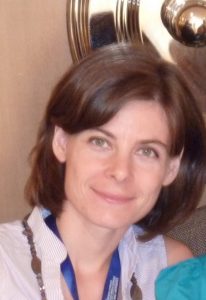
Speech and Language Pathology Dept. Moscow State Pedagogical University Russian Federation
Dr. Yulia O. Filatova, professor of Moscow Pedagogical State University; her academic, research and clinical interests are in the area of diagnostics and treatment of speech and language disorders, especially fluency disorders. She has authored numerous research and clinical papers, chapters in books and books for stuttering, cluttering, differential diagnostics of fluency disorders. Member of the International Fluency Association (IFA), International Cluttering Association (ICA). Member of number of scientific journals.
Lecture title: Rhytmic processes in speech development and language disorders
prof. dr hab. Stanisław Grabias
Maria Curie-Skłodowska University in Lublin
Linguist, professor since 1995; research fellow at Maria Curie-Skłodowska University in Lublin. Head of the 1990 Department of Logopedics and Applied Linguistics at MCSU in Lublin; the man behind and the creator of logopedics specialization within Polish Philology Studies, initiator of the Language communication and its disorders publishing series. Author of works on lexicology, applied linguistics, sociolinguistics and logopedics. His works had profound impact on Polish logopedics. Some of his publications include: About language expressiveness (1981), Logopedics subject (1990), Language in social behaviour (1994, 2nd amended edition 1997); co-author (with L. Kaczmarek and T. Skubalanka) of Student dialect dictionary (1972, 2nd edition, 1994); editor of collective works: Deafness and language (1981), Speech impairments (2001). Father of the Polish logopedics.
Lecture title: Between Medicine and Linguistics, Logopedics as a Scientific Field
prof. Henriette W. Langdon, Ed.D., F-CCC-SLP, BRS-CL 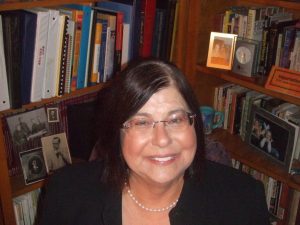
Communicative Disorders and Sciences at San Jose State University in San Jose, California, USA
Henriette W. Langdon is a Professor in Communicative Disorders and Sciences at San Jose State University in San Jose, California. She has over 40 years experience and she has been a clinician, professor, supervisor, mentor, author and presenter. Her areas of expertise are bilingualism, language and learning disabilities in children as well as assessment and intervention issues. Henriette has authored articles and books on these topics including on how to work with interpreters when children and families do not speak the primary language of the country. Dr. Langdon speaks, Spanish, Polish, French and English. She was raised in Mexico by parents and grandparents who were WWII Polish immigrants.
Lecture title: Differences in languages or Language Disorder? Case Studies of Monolingual and Bilingual Students in Four Different Languages
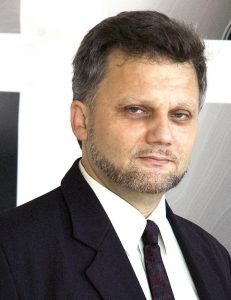 doc. paed. dr Karel Neubauer
doc. paed. dr Karel Neubauer
University of Hradci Králové
Karel Neubauer PhD, is a professor of Speech Pathology at the University of Hradec Králové, at the Department of Special Education and Logopedics. He is also a coordinator of the Experts Committee of the Association of Clinical Logopedics of the Czech Republic (AKL ČR) and a permanent member of the Eligibility Committee of Clinical Logopedics Institute of Medical Education in Prague (Praha IPVZ). For more than twenty-five years he has been working as a speech-language therapist with children and adults. He has been leading the Speech Clinic in Česká Lípa for fifteen years. In 1999 he completed a four-year program of integrative psychotherapy under the guidance of prof. Stanislav Kratochvíl. He is a specialist in using a non-directive supportive psychotherapy and cognitive-behavioral approaches in the complex therapy for patients with fluency disorders and neurogenic communication disorders.
Lecture title: Adults after trauma CNS – implication for long-term clinical SLT intervention
dr hab. prof. UP Mirosław Michalik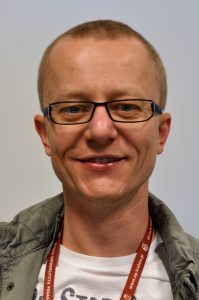
Pedagogical University of Kraków
Head of the Neurolinguistics Department of Pedagogical University of Kraków, vice-president of Polish Logopedic Society, chief editor of Studia Logopaedica series, assistant editor of Practical Neurolinguistics, head of po Communication of non-speaking persons postgraduate studies, coordinator of Neurologopedics with audiology elements postgraduate studies (UJ, UP), expert witness on logopedics, active speech therapist.
Lecture title: Linguistic competence of speech-impaired people
dr hab. prof. US Barbara Ostapiuk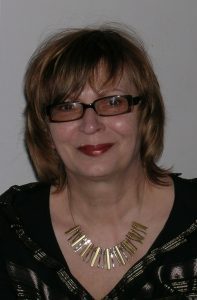
University of Szczecin
Linguist, speech therapist, professor at Special Pedagogy Department at University of Szczecin. She got her speech therapist experience working in numerous healthcare and educational facilities. Her scientific interest is focused on logopedic issues of speech impairment theory, diagnostic practice and therapeutic proceeding regarding individuals with speech impairment, in particular – ignored and unrecognised in both literature and practice (medical and logopedical) – issue of tied tongue. Her research is crowned by the following monographs: Ankyloglossian dyslalia . Of tied tongue, faulty articulation and treatment (2013) and Dyslalia. Of articulation quality research in logopedics (2013). She is an active advocate for the logopedics society (among others she was the president of Pomeranian Logopedics Society, member of the Committee for Development and Speech Impairment, Committee of Linguistics of the Polish Science Academy, she is a member of the Polish Logopedic Society board). She is the head of Logopedics and Language Education postgraduate studies at the University of Szczecin. Awarded with Bronze Cross of Merit and Medal of Commission of National Education.
Lecture title: The reasons for inconsistency in the assessment of the tongue frenulum
dr hab. prof. UŚ . Danuta Pluta-Wojciechowska 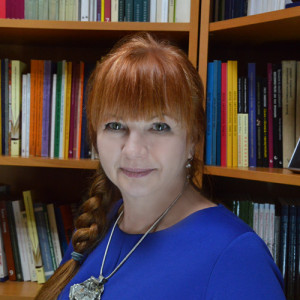
University of Silesia in Katowice
Professor at University of Silesia, department of Sociolinguistics and Social Communication Practices, professor at University of Łódź at Logopedics and Dialectology department. Her main field of scientific interest revolves around speech impairment among children with defects within middle part of skull, with primary function impairments, such as eating and breathing impairments. She researches speech impairments in distorted discourse in relation to cognitive linguistics. She is also interested in pathophonetics, in particular phoneme realization disorder, conditioned both constitutionally and functionally, as well as dyslalia therapy theory and methodology.
Lecture title: Speech therapy effectiveness in case of the disorder of primary activities and articulation disorders
dr hab. prof. UMCS Tomasz Woźniak
 Maria Curie-Skłodowska University in Lublin
Maria Curie-Skłodowska University in Lublin
Speech therapist and linguist, head of the Logopedics and Applied Linguistics department at the Maria Curie-Skłodowska University in Lublin His research is focused mainly on psychogenic speech disorders, narration theory, stuttering, educational programmes for speech therapists, diagnosis and speech therapy. As active speech therapist he specializes in diagnosis and therapy of individuals with speech fluency impairments. Co-creator of the Polish Logopedics Association (1999), head of the Polish Logopedics Society (2008-2014), head of the Educational IALP Committee for Logopedists (2013-2016), currently consultant KE IALP for Logopedists (since 2016). Author and co-author of several dozens of publications, co-editor of three multi-author monographs, including Logopedics. Logopedics standards of conduct (Lublin, 2015). Awarded with Silver Cross of Merit (2002) and Golden Cross of Merit (2014).
Lecture title: Evidence-based speech therapy
dr hab. Lilianna Konopska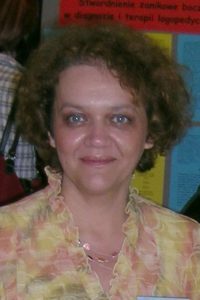
University of Szczecin
Lilianna Konopska, dr hab. – assistant professor at Special Pedagogy Department at University of Szczecin. Author of the first monograph on articulation quality among people with malocclusion (Articulation among people with malocclusion, Published by University of Szczecin Publishing House, Szczecin, 1996). Her research interest is focused on speech impairment theory and practice, diagnosis and therapy of articulation of patients suffering from malocclusion (Logopedic approach to individuals suffering from malocclusion. In: Logopedics. Logopedics standards of conduct. Academic textbook. Edited by S. Grabias, J. Panasiuk, T. Woźniak. Published by UMCS, Lublin, 2015), Sonority distortion (Desonority in dyslalia. Articulation, acoustics and audit analysis. Published by University of Szczecin Publishing House, Szczecin, 2015).
Lecture title: Factors affecting pre-, peri- and early postnatal wellbeing in children with consonant devoicing
Logopedics and Voice Emission Institute, University of Warsaw
Department of Logopedics and Applied Linguistics, Maria Curie-Skłodowska University in Lublin
Phonetician, speech and language therapist for the hearing impaired, linguist. Long-time of faculty member at the the Logopedics and Applied Linguistics department at the Maria Curie-Skłodowska University in Lublin. Currently assistant professor at Logopedics and Voice Emission Institute, University of Warsaw. Researches speech acoustics, speech therapy for the deaf and hearing impaired and experimental phonetics. Head of a research project funded by National Science Centre on description of contemporary polish articulation using electromagnetic articulography. Long-time involvement in various research projects related to, among others, creation of Polish articulation database, educational portal of Polish applied phonetics, Internet logopedics encyclopaedia and works related to screening with „Słyszę…” i „Mówię…” programs. Took part in works on Polish, English and Spanish versions of the „Mówię…” test. Author of two monographs: Articulation of deaf children. Auditive and acoustic analysis (2008) and Normative articulation of Polish nasal vowels and lateral consonant (2016), as well as several dozen articles, reviews and encyclopaedia entries. Co-author of articulographic analysis computer software.
Lecture title: The articulatory characteristics of Polish retroflexes
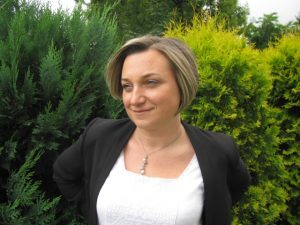 dr hab. Irena Polewczyk
dr hab. Irena Polewczyk
University of Silesia in Katowice
Assistant professor at Department of Early School Education and Media Education at the University of Silesia in Katowice. University of Silesia faculty member since 1991. Since 2002 she is the research supervisor of Logopedics Science Club – Lallatio on Pedagogy and Psychology department. Both theoretical and practical speech therapist. She’s been researching speech and aural perception in children for many years. She collaborates with numerous scientific centres both in Poland and abroad, mainly in Slovakia and Belgium. Author of over 70 publications on logopedics and pedagogy and author or co-author of 6 books, including habilitation monograph entitled Diagnosis and stimulation of aural perception in children at kindergarten age published by Campus Publishing House Żak, Warsaw 2013. It is a theoretical-empiric study of aural perception viewed from numerous research perspectives: pedagogical, psychological, linguistic, medical and primarily, from the perspective of acoustic phonetics. Multiperspective approach to the subject makes the book a compendium of knowledge on aural perception. Recently her interests focus on children suffering from central auditory processing disorder. It is the subject of her co-operation with phoniatrics clinic in Poznań, Department of Physics of the UAM, Bonum Commune Foundation and hearing research facility in Wrocław.
Lecture title: School functioning of a child with APD: educational challenges

